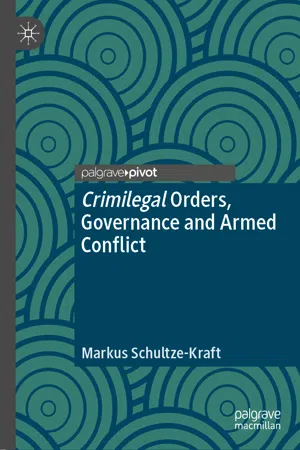Nestled between the river Cauca and Colombia ’s western-most Andes ridge on the Pacific seaboard, Cali is known for its spectacular lush green environment and exquisite brand of salsa music. On a darker note, this city of two and a half million boasts the unenviable reputation of having been the home base, during the 1980s and 1990s, of one of the most notorious drug trafficking organisations in Latin American history: the so-called Cali cartel . The vibes of that past can still be felt. Although law enforcement eventually caught up with the Rodríguez Orejuela organisation, renowned for its many tentacles in public administration and political and economic society, the unmistakable, if fading, signs of narco-dollar financed luxury and lifestyle remain palpable. Of more concern, the city has stubbornly continued to operate as a major transnational drug trafficking hub and a key transaction centre for other criminal enterprises, including human trafficking and illegal mining across Colombia ’s mineral-rich south-west. Unsurprisingly perhaps, Cali has never shaken the spell of figuring among the world’s cities with the highest homicide rates, despite recent improvements. Adding to the challenges, after serving for decades as a place of refuge for war-displaced populations from the Pacific region, since peace talks with the government of President Juan Manuel Santos (2010–2018) concluded in late 2016 the city has been taking in hundreds of demobilised fighters of the Revolutionary Armed Forces of Colombia (FARC , in Spanish) seeking reintegration into civilian life. It has been in this setting that after returning to Colombia and joining the faculty of a well-regarded private university—following a four-year stint at the Institute of Development Studies (IDS) in the then-already-brexiteering UK preceded by a decade’s worth of Bogotá-based work with the International Crisis Group —I have taken to developing my thinking on what I call crimilegality . 1
In its origins, my journey into crimilegality unknown, as I like to portray this ongoing scholarly quest, sprang from grounded observation and lived experience, not abstract reasoning. It was prompted by a long succession of impressions and a wealth of rough primary data—some of them solid and irrefutable, others less so—gathered in innumerable interviews, conversations and interactions I entertained over some fifteen years with people of all walks of (low) life involved in official and unofficial capacity with armed conflict , political crises and a broad range of illicit activities. When based in Colombia , my Crisis Group brief entailed regular field trips to many regions of the country and other Latin American and Caribbean states, including Bolivia , Ecuador , Venezuela , Haiti , Guatemala , Peru , Mexico and Brazil . 2 Working from the UK, I had the opportunity to branch out and expand my geographical focus to incorporate Kosovo in the Western Balkans and Nigeria in West Africa , among a few other challenging places. 3 In all these settings, in some of which I had worked before as a graduate student, 4 I encountered complex, intricate and shadowy issues regarding the relationship between the state and political authority, on the one hand, and what is commonly termed “organised crime ” on the other. By the same token, I found that both local and international observers and decision-makers, including police and military officers, often seemed a little too guarded, if not lost, when asked what they thought about this sensitive topic.
From Colombia to Kosovo and Haiti to Nigeria , one often-voiced view was that organised criminal activities and structures are apart and removed from political hierarchies and institutions, representing instead some kind of alien “underworld” creature. Portrayed as menacing, violent and chameleonic, fighting organised crime was perceived as a job for law enforcement, the intelligence community and, if necessary, the military . Other interlocutors would go further and point to interlinkages between criminal structures and “overworld” organisations, both in the public and private domains. A popular metaphor in this regard was that of the “rotten apples”, as in, “it is a few individuals in the state and wider political and economic society, not the whole system, who abuse their entrusted position and the power vested in them in the—immoral—pursuit of personal material, financial, political and other goals”. Still other voices would suggest that globalisation was to blame for the unprecedented rise of transnational organised crime and the associated criminal transformation or “criminalisation” of entire states. Exacerbated by feeble or dysfunctional international peace- and statebuilding interventions, fragile or failed states like Afghanistan , Bosnia , Guatemala , Iraq and Kosovo were putatively turning into veritable mafia organisations or criminal governance machines, or so the argument ran.
Starting the work on crimilegality , I contrasted these accounts—which are reproduced here in highly stylised manner—with the scholarly literature on organised crime . It emerged that some of the seminal academic work on the subject matter, which I discuss in Chapter 3, displayed a rather similar phenomenological focus. Scholars’ attention was absorbed by the ways in which (transnational) criminal groups organised, what illicit markets they operated in and how threatening the violence they unleashed was to democracy, law-abiding citizens and states and the international community. Overall, I found, there was little critical analysis that would have systematically tackle...
